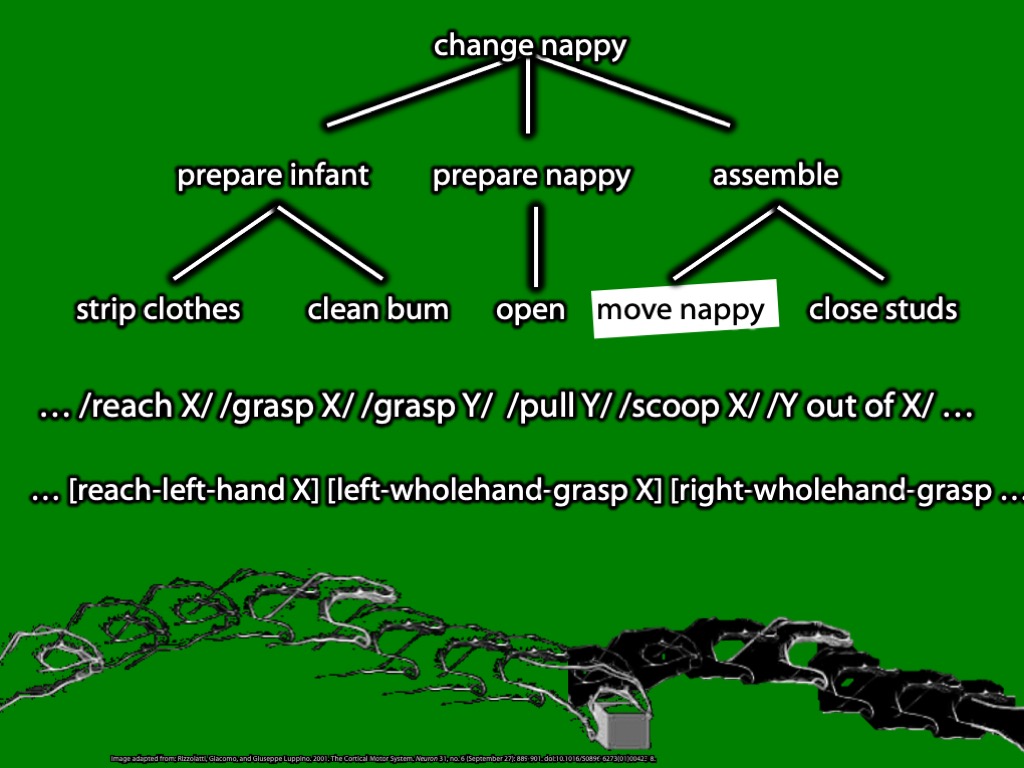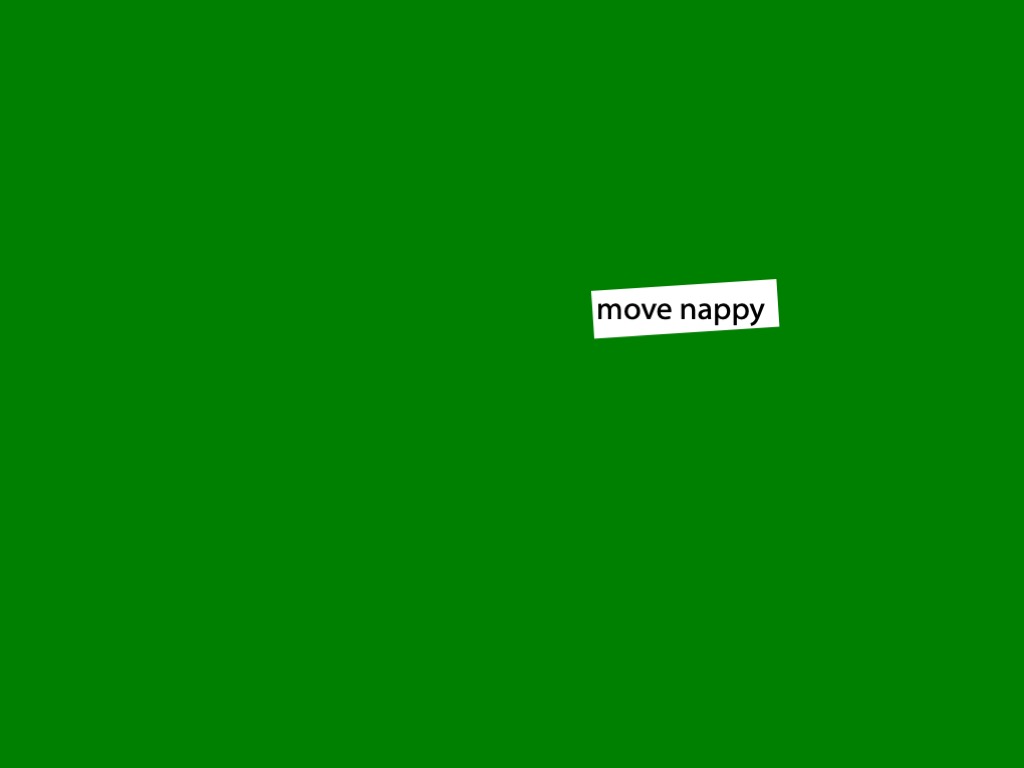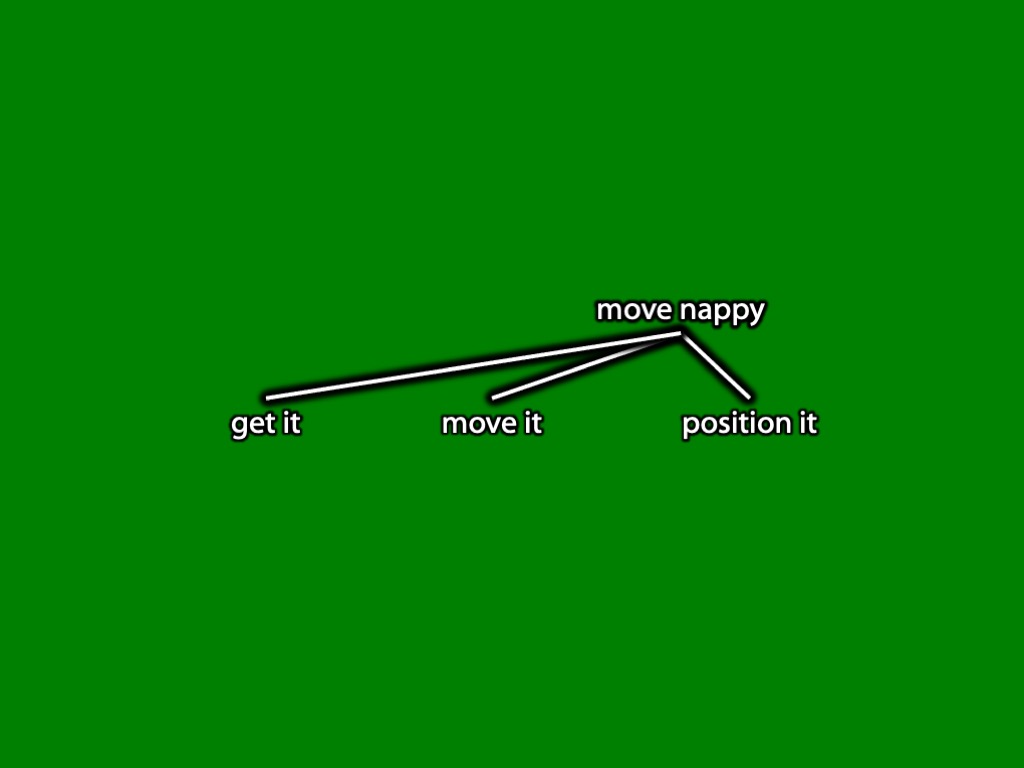Click here and press the right key for the next slide (or swipe left)
(This may not work on mobile or ipad. You can try using chrome or firefox, but even that may fail. Sorry.)
(If the slides don’t work, you can still use any direct links to recordings.)
also ...
Press the left key to go backwards (or swipe right)
Press n to toggle whether notes are shown (or add '?notes' to the url before the #)
Press m or double tap to slide thumbnails (menu)
Press ? at any time to show the keyboard shortcuts
Lecture 10:
Mind & Reality
\def \ititle {Lecture 10}
\def \isubtitle {Mind & Reality}
\begin{center}
{\Large
\textbf{\ititle}: \isubtitle
}
\iemail %
\end{center}
\section{Action: The Question}
\emph{Reading:} §Frankfurt, Harry G. ‘The Problem of Action’. American Philosophical Quarterly 15, no. 2 (1978): 157–62., §Davidson, D. (1971). Agency. In Binkley, R., Bronaugh, R., and Marras, A., editors, Agent, Action, and Reason,, pages 3–25. University of Toronto Press, Toronto. Reprinted in Davidson, D. (1980) Essays on Actions and Events. Oxford: Oxford University Press.
what's happening every time we have a topic we have a question and the
question is the question that i'm going to sort of grapple with a little
bit in lectures it's also the question that you're going to write about
for the seminars and the assessments and it's the question that we'll
discuss in the seminars and it's the question that will appear on your
exam paper very thinly disguised yeah that one question is doing a lot of
work for us so hopefully you're going to agree with me that this is a
really good question it's a really juicy question
this is the question yep it's going to come up for the assessed work that
you're going to do it's going to come up for the seminars that's what
we're talking about for three lectures and it's going to come up in the
exam very thinly disguised yeah i'd like to thinly disguise my question
so you can do good preparation and write something interesting the exam
good all right i'll take that very good
Q
What is the mark that distinguishes actions?
\citep{Davidson:1971fz}.
distinguishes them from what?
‘The problem of action is to explicate the contrast between
what an agent does
and
what merely happens to him’
\citep[p.~157]{frankfurt1978problem}.
Frankfurt, 1978 p. 157
We’re not from the 1970s (well I am), so ...
this morning is that gertrude she got out of bed and she was feeling a
little bit sleepy uh she was feeling a little bit sleepy and as she
stepped out of bed there was a cat and she tripped over the cat she
somersaulted fell down the stairs and was hit by a black range rover
weighing two tons um those are all events in her life they make up her
life and in fact they're quite a memorable part of her life but for the
most part there are very few actions there the only thing that she did
was get out of bed right all of the rest are tripping over the cat and
everything those were things that merely befell her that merely befell
her so we want to know what distinguishes the actions from the things
that merely befall you harry frankfurt who's our superstar he wrote a
six page paper on this topic so i thought that would be a good one i've
set this as the main thing to read it's called the problem of action
from 1978 he says the problem of action is to explicate the contrast
between what an agent does and what really happens to him what does
gertrude do and what really happens to her getting out of bed is
something that she does being hit by that inattentive driver is
something that really happens to her although of course she was the
cause of it after all if she hadn't got out in bed and tripped over the
cat it would never have happened
what's my plan i'm so glad i asked it's a good question what i'm going to
do is two things i'm going to tell you the standard story this is not
frankfurt's view at all i'm going to tell you the standard story this is
the view that frankfurt opposed i'm going to present what he calls causal
theories right i don't think they're particularly cause i don't think
they're particularly theories but there you go um and then i'm going to
give you frankfurt's objections to them we're going to see whether
frankfurt's objections hold water or not frankfurt is interesting because
he's a super sharp very bright philosopher but he's also a little bit
slack he's also a little bit slack he's not like dretzki right he's not
like dretzki master of distinctions frankfurt is you know master of these
really brilliant sharp ideas but whether they really do what he thinks
they do or not that's going to be much harder question frankfurt's case
it's kind of interesting different styles of philosophy
Plan
0. Three Basic Principles
1. The standard story (‘causal theories’).
2. Frankfurt’s objections to the standard story.
/ex/q/What is the overall question for the unit on action?

Action: Three Basic Principles
\section{Action: Three Basic Principles}
even before we get to the Standard Story, we're going to have to agree on
some basic things about action
none of this is entirely uncontroversial if
you have spent enough time among philosophers you will know that
philosophers can disagree about almost anything that you can think of.
but there are many more disagreements than there are interesting and useful
fruitful disagreements so i'm going to establish some common ground now and
if you disagree with me it will be okay because the differences are going to fall out in the wash
they're not going to be
important differences
1
actions have hierarchical structures
first principle actions have hierarchical structures
what do you mean steve?
well here's an
action changing the nappy.
I say to you, do you mind changing the nappy i
think i feel like it's your turn i feel like it's your turn uh and you go
and change the nappy thank you very much that was marvelous because you've
just illustrated this point about actions having hierarchical structures
it
was a bit smelly it was a bit smelly um but what you did essentially right
this is very a lot of people here probably haven't changed nappies recently
is that is that fair fair assumption
anyone changed a nappy this week
well
done okay very good most people haven't done that so tell me if i'm wrong

changing the nappy is one action, but it has proper parts which are also actions.
you've got to prepare the infant you've got to prepare the nappy and you've
got to assemble the two
yeah now i use i use reusable nappies i was very
pleased about this i used reusable nappies it wasn't that much work and
it's actually less smelly because if you use the disposable ones you've got
a big pile of smelly nappies hanging around whereas with the washable ones
you put them in a bucket and then you wash them so you've got less smell it
anyway whatever sorry steve sticks the point this is action theory right
it's not baby changing
i'm very proud of my nappies and i kept on having
kids as well so it was very useful because i kept on using the same nappies
got loads of miles out of those nappies
to start with prepare the infant you prepare the nappy and you uh assemble
the two things now each of these of course is an action in its own right
you can see that because we could divide this between us right i could
be preparing the infant you could be preparing the napkin we can do the
assembly part together but if you're doing it there's one action right
changing the nappy but that action itself has parts which are themselves
actions
furthermore the proper parts which are themselves actions relate to the
whole as means to ends yeah preparing the infant in this case is a means
to changing the nappy as is preparing the nappy as is assembling the two
right these things relate to each other as means to ends so we can order
them partially order them by that means end relation

preparing the infinite itself is a fairly complicated action you've got
to strip the clothes and clean that little bottom get the poo away from
it right and of course you've got to do you know other things here these
are fairly complicated actions so the whole thing goes on but what you
notice here each of these actions themselves have parts but the parts are
related as means to ends parts are related to the large bits as mean to
end so we've got a hierarchical structure here partial ordering with a
single maximal element

and ultimately of course as you move down the hierarchy there's my little
picture here it is as you move down the hierarchy you're going to end up
with a sequence of bodily configurations and joint displacements

if you
go all the way down the hierarchy you're going to end up with a sequence
of bodily configurations and joint displacements which are plausibly not
actions or at least maybe don't have parts which are actions somewhere so
we're going to get down we're going to have a hierarchical structure it's
going to be finite but nearly all of the actions that we talk about the
changing of the nappy are themselves going to have proper parts which are
actions very simple idea not trying to say anything complicated here it's
supposed to be largely uncontroversial

The structure is even more complex that this suggests;
consider an apparently simple action like movig the nappy ...

now of course even something looks pretty simple like moving the nappy
from one place to another that itself is going to have various different
parts so there's going to be a problem of getting the napier problem of
moving the nappy and a problem of positioning it and each of those can
have

i love this example because it's such a complicated skilled action right
you can get very good at it and when you watch people who are doing it
for the first few times just hilarious really hilarious right it's a
fairly difficult thing to do um okay what's my point here my point is
very simple actions have hierarchical structures actions have components
which are themselves components those components parts are related to the
whole as means to ends the means end relation induces a hierarchical
structure that's to say a partial ordering with a single maximal element
actions have hierarchical structures very simple very uncontroversial
1
actions have hierarchical structures
2
actions are individuated by outcomes
if i have some things and i want to individuate them what i mean is i
want a way of saying what distinguishes one of those things from all of
the others so the idea here to say that the actions are individuated by
outcomes is to say that i can use i can refer to some outcomes in order
to distinguish one action from all the other actions
one is distinguished from another.
As when I ask, ’What is she doing?’
An outcome is a possible or actual state of affairs.
What has she done?
- She killed the king.
Outcome: the killing of the king.
so here's an outcome the killing of the king i'm telling you what she's
done by specifying the outcome i'm giving you an outcome that
distinguishes her action from all the other actions very good now of
course in that case we're thinking that the outcome is actual but not all
the action not all the outcomes that we need to refer to are actual
Not all outcomes are actual.
What is she doing?
- Digging a 6ft hole.
Will she succeed?
- No.
you can distinguish an action from all other actions by reference to a
non-actual outcome i might say look what's she doing now right she's
digging a six foot hole okay so here's an outcome the digging of that
hole will she succeed no what i'm telling you is that the outcome isn't
actual it's not going to happen the ground is too hard the tools that
she are you she's using are not really good tools right
Not all outcomes are end states;
nor need they be consequences of actions.
What did he do?
- He reached for his gun.
sometimes people confuse outcomes with end states and we want to avoid
that we don't want to think that outcomes are end states nor do we
think that outcomes have to be consequences of actions so you shot him
what did he do he reached for his gun right so here we're talking about
an outcome here we're specifying an outcome the reaching by him for his
gun but of course that reaching isn't something like the end state the
end state of the reaching will be of course some kind of contact with
the gun right so the reaching isn't the end state the reaching is the
thing that unfolds through time
this outcome, it's also of course
not something which is a consequence of the action
this is quite different from the earlier case when we talked
about the action of killing the king in that case the outcome that
we're talking about is separate from the action caused by the action
If by outcome we
understand a possible or actual state of affairs then reaching for his
gun is an outcome possible actual state of affairs but it's not an end
state or a consequence of action
type vs token
Ayesha and Alfie are raising money by running 10k.
Ayesha is running 10k.
Alfie is running 10k.
here's aisha and alfie and they're raising money by running 10k
for some reason if you agree to run a fairly small amount of distance
people will give you money
they're raising money to bring home the
martian there's this guy who's been stranded on mars and he's stuck there
and there's no way there's no sort of funds to find a mission to to bring
him home and so they're trying to do this to to bring home the martian so
(It’s a bit like Britain’s current approach to funding the NHS.)
But here’s the objection ...
i say to you aisha is running 10k and you said to me well alfie's running
10k looks there like there's one outcome.
It looks like there's one outcome and so it looks like the idea that we
can individuate actions by outcomes is wrong because we've got the same
outcome twice but two different actions
1. Ayesha’s action and Alfie’s action are directed to the same outcome.
2. Ayesha’s action and Alfie’s action are different.
3. Therefore, actions cannot be individuated by outcomes.
it's a mistake to think that there's really one outcome here we've got
the same form of words and we have got the same type of outcome but if
you think about it aisha might succeed even if alfie falls into a well
okay so they're running along and unfortunately somebody's left the
cover off the well and this big you know two-ton land rover vehicle
comes up and alfie swerves to avoid it and falls into the well so it
doesn't complete the 10k run but aisha does aisha succeeded alfie fell
what that tells us i think is that these two outcomes are clearly
different things there is the running of the 10k thing by aisha at this
time and there is the running of the 10k by alfie at that time and
those are two just quite different outcomes so we should be careful
here to distinguish between type of outcomes and particular outcomes
One can fail while the other succeeds.
2
actions are individuated by outcomes
in saying that actions are individuated by outcomes we're just saying
that we can use outcomes to distinguish one action from other actions
but individual to individuate things is not to say what they are
But what *are* bodily actions?
bodily configuration
joint displacement
outcome
clearly we're just talking about bodily actions right so if you think
that there are non-bodily actions you don't think that those are
sequences of joint displacements and bodily configurations
in this case right we could either say that we're just talking about
bodily actions let's let's leave it open or we could say look maybe
this is the wrong way of thinking about actions for my purposes
curiously enough it doesn't matter super much
what actions actually are.
the main reason i want to mention this is not
to offer you a controversial claim but to stress the difference between
answering the question about individuation what individuates actions we
can do it by outcomes and telling you what actions actually are
i
haven't really told you what actions are when i've told you that we can
individuate them by outcomes.
so what i'm saying here is that
we can use outcomes to distinguish one action from any other action.
that's the claim
3
one action can have multiple descriptions
my third point is that one action can have multiple descriptions.
let me go back to you ah what
have you done she's killed the king bit of drama how did she kill the
king?
Recall this example ...
What has she done?
- She killed the king.
Outcome: the killing of the king.
How?
- She put poison in his ear.
she put poison in his ear how did you do that right that would be
difficult to do well the king was sleeping and she pulled it from a
bottle a vial right anyone know this story
she she pulled it from the bottle now what's curious about this is that
there's only one action here there's only one action it's not like
there are multiple actions that that somehow she pulled the poison from
the bottle and that's somehow different action from putting poison into
the king's ear which is somehow different action from killing the king
not at all
How?
- She poured it from a bottle.
One action, many possible and actual outcomes.
You can use any outcome to describe the action.
Why is this puzzling?
here's the reason why that seems a bit puzzling. so at the point
where she is (this is davidson it's not my example um i guess it
shakespeare really but anyway) at the point where she's pouring poison
in the ear it's unknown whether or not she's killing the king.
later it
turns out that she has killed the king right it might have turned out
that he had you know some some blockage in his ear right um terrible
ear wax that saved his life but anyway apparently he didn't
so she's
pouring the poison into his ear and killing the king now we don't know
yet whether her action is the action of killing the king but sometime
later it turns out that it is
now of course at that point this action
is essentially the action of killing the king it couldn't be any other
action. there's no other possibility this action the thing that it
is can only be the killing of the king so pouring the poison in the ear
just is killing the king: one in the same action but different outcomes.
we know they're different outcomes because we can think of them as
being causally related and you can't the relate things unless they're
numerically distinct and we also know that we've got different
descriptions and the way that the descriptions pick out actions is via
specifying outcomes
1
actions have hierarchical structures
2
actions are individuated by outcomes
3
one action can have multiple descriptions
People sometimes ask whether 3 and 2 are in conflict. No, they are not.
What 2 requires is that if you have an outcome, you can pick out at most one action.
This is consistent with allowing that actions can have multiple actions.
For people doing vaguely mathematical subjects, the action-outcome relation is a one-to-many relation
which relates each action to at least one outcome.
/ex/TorF/qq/Actions have hierarchical structures|Actions are individuated by outcomes|One action can have multiple descriptions
/ex/TorF/qq/To claim that actions are individuated by outcomes is to claim that actions are outcomes|If actions are individuated by outcomes, each action must be associated with exactly one outcome|If actions are individuated by outcomes, each action must be associated with at least one outcome|If actions are individuated by outcomes, each action must be associated with at most one outcome
/ex/TorF/qq/If Ayesha is running 10k and Alfie is running 10k, their actions are directed to the same type of outcome|If Ayesha is running 10k and Alfie is running 10k, their actions are directed to the same token outcome

Causes of Action: Belief and Desire
\section{Causes of Action: Belief and Desire}
Ahmed’s next action will be either to pull the lever or to press the button (but he cannot do both).
If he pulls the lever, a forest rat will fall on his head.
If he pushes the button, he will get ten dollars.
Will Ahmed pull the lever?
What is the minimum you need to know in order to know what Ahmed will do?
Will Ahmed pull the lever?
| Ahmed desires forest rat most. | Ahmed desires ten dollars most. |
| Ahmed believes truly. | ✔ | ✘ |
| Ahmed believes reverse-ly. | ✘ | ✔ |
Action is a function of belief and desire.

Same idea from the perspective of decision theory
Action is a function of belief and desire.
/ex/q/Suppose you know Ahmed prefers receiving ten dollars to a forest rat landing on his head. Despite this, you observe Ahmed pull the lever. What might you infer from this observation?
\section{Intention}
\emph{Reading:} §Davidson, D. (1978 [1980]). Intending. In Essays on Actions and Events, pages 83–102. Oxford University Press, Oxford., §Bratman, M. E. (1985). Davidson’s theory of intention. In Vermazen, B. and Hintikka, M., editors, Essays on Davidson: Actions and Events, pages 13–26. Oxford University Press, Oxford. Reprinted in Bratman, M. (1999) Faces of Intention. Cambridge: Cambridge University Press (pp. 209–224).
Action is a function of belief and desire.
I desire to bring the Martian home.
I believe I can bring him home by sending a rescue mission.
I desire to alleviate global poverty.
I believe I can alleviate global poverty by giving money directly.
Action is a function of belief and desire.
I want to earn more money.
I believe I can earn more money by getting a new job.
I want to take it easy today.
I believe I can take it easy today by not getting a new job today.
Belief and desire alone are not sufficient for action.
Simple Idea
Your beliefs and desires shape deliberation about what to do.
Deliberation characteristically results in intention.
Intentions control action.
Ex
I desire to nurture squirrels.
I believe I can do so by building a squirrel house.
therefore:
[Intention] I shall build a squirrel house next Tuesday.
Claim: without the intention, belief and desire would not lead to action in this case.
(Intention is no guarantee, of course)
Unless I want to drift through my life,
at some point I just have to decide and make a plan.
Intention is the upshot of the plan.
I want to earn more money.
I believe I can earn more money by getting a new job.
I want to take it easy today.
I believe I can take it easy today by not getting a new job today.
[Intention] Get a new job (somewhen).
[Intention] Take it easy today.
What is wrong with this combination of intentions?
principle of agglommeration
Nothing irrational about not agglommerating desires ...
/ex/TorF/qq/Belief and desire alone are not sufficient for action.|An intention is a kind of desire.|The role of intention is to control your actions.|The role of intention is to shape your beliefs.|The role of intention is to shape your desires.
/ex/q/What was the discussion of bringing the Martian home supposed to show?
\section{Interim Conclusion on Action}
\emph{Reading:} §Frankfurt, Harry G. ‘The Problem of Action’. American Philosophical Quarterly 15, no. 2 (1978): 157–62.

conclusion
In conclusion, ...
Q
What is the mark that distinguishes actions?
\citep{Davidson:1971fz}.
‘The problem of action is to explicate the contrast between
what an agent does
and
what merely happens to him’
\citep[p.~157]{frankfurt1978problem}.
Frankfurt, 1978 p. 157
‘According to causal theories [...] the essential difference
between events of the two types
[actions vs things that merely happen to an agent]
is to be found in their
prior causal histories: a [pattern of joint displacements and bodily configurations] is an
action if and only if it results from antecedents of a certain kind.’
\citep[p.~157]{frankfurt1978problem}.
Frankfurt, 1978 p. 157


















